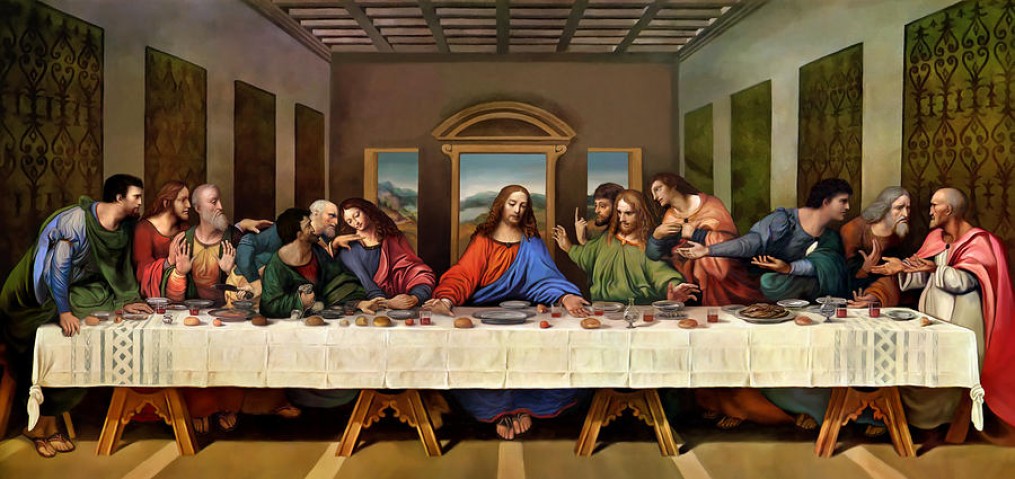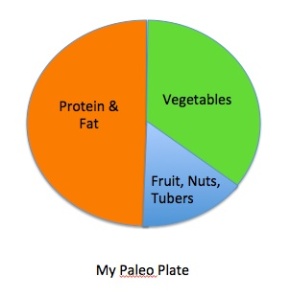Before I get in to the meat of this post, I wanted to share a story with you. Yesterday I finally decided to act on what I have felt I was being led to do by starting this blog. Then today in church, the preacher talked briefly about health and nutrition. Of course his talke included some things I tell you not to eat, but I thought it was kind of a funny little coincidence. I don’t believe in coincidences, though. To me, it was just God confirming that I am doing what He has led me to do. I love it when He winks at you, don’t you?
Last night, I got a call from my mother in law asking what Paleo is. She had seen my first post, and was wondering what I was talking about. It’s funny when you have been doing something for so long that you take it for granted that everybody knows about what you are talking about. She was interested in it because she has seen what it has done for me and my health, but really never understood what it was. That made me aware that I need to take a minute to explain what Paleo is.
First off, let’s start with what it is not. It is not a “diet” in the sense that it shouldn’t be something that somebody uses to lose weight and then go back to eating and moving in a way that is harmful. It is a diet in the truest sense of the word in that it is the way we are meant to eat. It also describes the way we are meant to move, but I will save that for another post. I am also not going to go too deeply in to the scientific reasonings for why certain foods are bad and certain foods are good for you. Many others before me have tackled that. Plus, there is just too much to talk about in one blog post. I will be hitting them as time goes on. If you just can’t wait for me to get in to it, then I suggest you head out and get a couple of books. Check these out:
It Starts with Food
The Paleo Solution: The Original Human Diet
You can click on the titles to check the book out at Amazon. I am not a code monkey, so I can’t figure out how to make them blue to let you know you can do that. Sorry. These are all excellent resources if you really want to get in to the science of it right now.
Basically, the theory behind paleo is that our bodies have not evolved to eat the foods that our modern society tells us to eat. Now that theory can be problematic if you don’t believe in the theory of evolution. Right out of the gate, the whole theory of the paleo way of eating is dismissed. But I encourage you to look at it the way I do. Rather than saying our bodies have not evolved to eat such and such, think of it as God did not create us to eat such and such. And while he gave us certain foods to sustain a society that he knew would develop after the fall from Eden, those foods are not necessarily the best thing to eat in order to thrive. You see the difference? He knew we would need to be able to support a large group of people and that would be impossible without certain foods that could be mass produced easily, however, even though it sustains you, it doesn’t necessarily help you to thrive.
Wow. That was circuitous, no? With all that being said, I prefer to start with the foods you will be eating. Starting with what you eliminate is so negative.
What You Eat:
- All meat (including beef, pork, fish, fowl and mollusk). These meats will preferably come from natural sources and will eat a diet that is natural for that species. In other words, cows don’t naturally eat grains, so you should eat grass-fed cows. Chickens are not vegetarian, so you should eat free range chickens that were not fed a “vegetarian” diet. You get the idea
- Eggs. Remember what I just said about chickens? The same holds true for their eggs. Get them from a local farmer if you can.
- Vegetables. These include all the seed bearing plants and fruits mentioned Genesis 1:29. This is where it gets a little sticky, though. Just because a plant bears seed doesn’t mean it is good for you. Poison ivy has seeds, but you don’t want to eat it.
- Tubers. By tubers, I mean sweet potatoes and yams. I do not mean white potatoes.
- Fruit. If you are trying to lose weight, I suggest not eating too much fruit. Maybe a piece of fruit a day. The reason is insulin. Fruit will cause your blood sugar to rise, which then stimulates insulin release, which will shuttle the energy into your fat cells if there is no room left in your muscles to absorb the energy.
- Nuts. Don’t try to eat a whole container of nuts in one sitting. Remember that when God gave man nuts, they didn’t come in a nifty jar already cracked. Adam and Eve had to crack the pecans if they wanted to eat them. That would naturally slow them down. Nuts can be high in calories. Their over-consumption will lead to weight gain. There are other problems with the omega 6 fatty acid loads that we will discuss later.
- Leafy greens. Go crazy on these. They are full of vitamins and minerals that your body needs. Since you can eat meat with them, there is nothing better than collards or spinach with some bacon.
- Fat. Fat will keep you full. Eating fat will also help your body to switch to a fat burning metabolism so you won’t need to eat as much and your body can have access to your own fat stores for energy (weight loss, yay!). So when I say fat, I mean natural fats, like those occurring in animal sources (lard, tallow, etc) and those occurring naturally in certain plants (avocados, olives, etc). I do not mean seed oils and vegetable oils. Those are to be avoided at all cost. They are highly inflammatory and will lead to health problems like heart disease. That means eat the butter, but not the I Can’t Believe It’s Not Butter.
- Wine. Have moderate amounts of dry red wines and there are many benefits you can reap from it. Avoid the sweet versions, and when you do drink wine, maybe keep it to one glass.
So you see there is a wide variety of things you can eat. You really should never run out of ideas of what to eat. You could go a whole month and not eat the same meal twice.
What Not to Eat:
- Wheat and anything containing gluten. There are many things wrong with wheat, and it is not just with modern wheat. The ancient Egyptians ate lots of wheat and we see signs of heart disease in their mummies. These guys got lots of exercise (there were no tv’s or video games to keep them sedentary) and they ate lots of healthy whole grains, like the USDA recommends, and yet they still had arteriosclerosis. We will delve more in to why you shouldn’t eat wheat in later posts.
- Added sugar. All of that added sugar not only spikes blood sugar and promotes fat storage, half of its make up, fructose, goes to the liver and is spit out as triglycerides. It also can lead to fatty liver disease which, incidentally is also a disease you get from drinking too much.
- Man-made oils. Have you ever seen oil come out of corn? Neither have I. There is a lot of chemical trickery that goes into producing it and other “healthy” vegetable oils. Don’t eat it. So no peanut oils, soybean oils or vegetable oils.
- Legumes. Beans (including peanuts and peas) do not want to be eaten by animals. As such, they have phytates and other anti-nutrients that can lead to a leaky gut which brings on a host of auto-immune problems.
- Dairy. This one is sticky. I recommend avoiding dairy for a month just to see how you feel without it. A minority of humans have the hormones necessary to properly digest dairy, so they can eat or drink it just fine. I know I mentioned butter earlier, but that is mostly just fat. The caseins and lactose are missing so you don’t tend to get the damage that dairy causes most people.
Some of the things that are on the no-go list are there because they will either make you fat or will keep you from losing weight. All of them are on the list because they can create health problems for you down the road.
As I mentioned earlier, this is not a “diet” for quick weight loss. If you need to lose weight, you certainly will eating this way. But the primary goal of this lifestyle is to promote good health. If you follow these directions, you will notice improved health in many areas. I was able to come off high blood pressure medications as well as reverse pre-diabetes and high triglycerides eating this way. To this day, my doctor still doesn’t believe that 60-70% of my daily calories comes from fat. That just doesn’t go along with what he was taught in med school. That is another topic for another day, however.
That is a lot of information for one post, but it just skims the surface of how to thrive with this way of eating. I hope this information will provide you a good start for your new journey to health!

